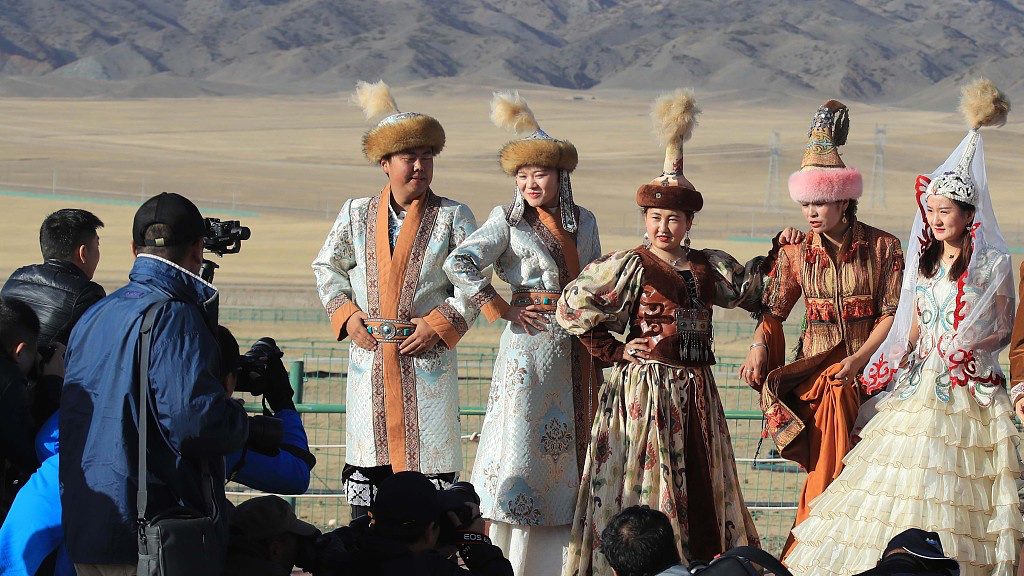
Editor's note: Andrew Korybko is a Moscow-based American political analyst. The article reflects the author's opinion, and not necessarily the views of CGTN.
The U.S. is on the path of passing the so-called "Uygur Human Rights Policy Act of 2019." This is a piece of legislation that embodies America's blatant meddling in the domestic affairs of other countries. The bill comprises a list of so-called "findings" and several mandated courses of action that would become legally binding for the president of the United States upon its passage into law.
The usual false claims of "mass internment," "discrimination," and "forced labor" have already been thoroughly refuted by Chinese officials. They have proven that nothing of the sort is transpiring in Xinjiang's vocational training centers. Nevertheless, the U.S. still tries to smear China's actions as "disproportionate response" to what are objectively serious security concerns. The report also condemns China's surveillance tactics, despite police all across the world using the same means to deter crime.
Speaking of law enforcement, even the United States' own criminal justice system wouldn't recognize vague claims of "ample evidence," "credible reports," "independent media reports," "experts," and Washington Post editorials in the court of law. Yet, all of the aforementioned are relied upon to defame China's reputation in the court of international public opinion. Although all countries regularly seek the extradition of their nationals accused of criminal activities, the U.S. believes that China shouldn't be allowed to bring Uygur fugitives to justice.
The Trump administration talks about the need for so-called "free trade" on one hand, yet raises concerns about American companies doing business in Xinjiang on the other. This proves that the slogan is only meant to be selectively applied for political convenience. The reason for such blatant double standards eventually reveals itself in the "findings" in the Belt and Road Initiative (BRI) section of the bill, in which it is alleged that the rights of minorities all across the Shanghai Cooperation Organization (SCO) member states are trampled upon.

Women perform on the Xinjiang region float as it passes during the National Day parade in Beijing, October 1, 2019. /VCG Photo
Women perform on the Xinjiang region float as it passes during the National Day parade in Beijing, October 1, 2019. /VCG Photo
Xinjiang, which is the home region of Uygur people, is the hub of BRI's inland connectivity initiative. This is why it's being targeted by the U.S. through information dissemination and weaponization of legal means. The bill mandates the U.S. president to condemn China's anti-terrorist policies in the region, internationalize the issue with the UN, sanction certain officials, restrict U.S. business activities in the region, create a "missing persons" database, and initiate "public diplomacy."
Those last two points deserve some further explanation. The "missing persons" database is designed to turn the unverified claims of the United States into an international controversy for attracting maximum media attention and possibly even support from Western celebrities. The second, meanwhile, is meant to provoke the global Uygur community against China while counteracting China's efforts and those of its SCO partners to debunk fake news being spread about Beijing's policies.
It's important to point out that the proposed bill specifically mentions ethnic Kazakhs four times and the SCO twice, suggesting that a plot might be underway to drive a wedge between China and its Central Asian neighbors, where the world's largest Uygur population lives. Any such schemes will fail because the SCO countries are united in their opposition to terrorism, separatism, and extremism.
Even so, it's important to expose the wider interference that the U.S. is undertaking against China. The "Uygur Human Rights Policy Act of 2019" is just one of three related pieces of legislation being proposed. The other two target Hong Kong and Tibet, and urge similar policies of economic sanctions and information warfare against China. Should any of these bills pass into law, the U.S. would be irreversibly worsening its relations with China for years to come.
(If you want to contribute and have specific expertise, please contact us at opinions@cgtn.com)